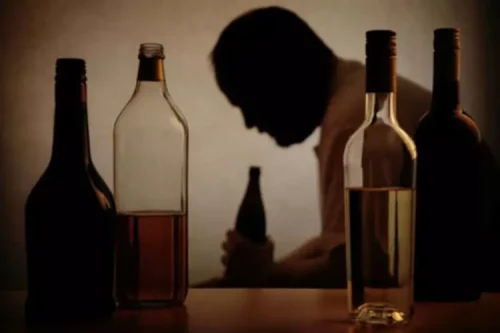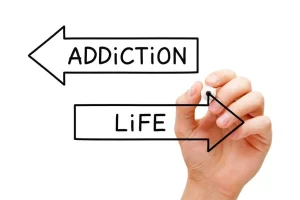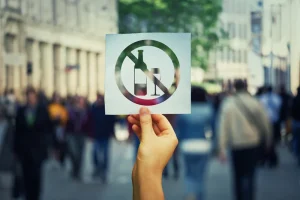
Alcohol can have a sedative effect and cause a person to fall asleep more quickly than usual. However, consuming alcohol can also cause sleep disruption and other adverse effects on people’s health. When you’re in the first two stages, you’re in “light sleep.” When you’re in the third stage, you’re in “deep sleep.” And the fourth stage is your “vivid,” or dream, stage. While every person’s individual sleep cycle varies, it’s generally true that each of us goes through four to six rounds of it. Each cycle lasts around 90 minutes total, which adds up to between six and nine hours of sleep. As research consistently shows, however, the opposite is actually true.

Deep Dive: What Alcohol Does to Your Sleep Cycle
Consuming alcohol regularly before bed can also make it more difficult to sleep, according to a 2016 study in the journal Drug and Alcohol Dependence. Researchers found that chronic or habitual alcohol use before bedtime led to bouts of insomnia. Sleep problems, such as difficulty getting to sleep, frequent waking during the night and difficulty getting up in the morning, were also more common in people with alcoholism.
What Happens When You Drink Alcohol Right Before Bed?
While many turn to alcohol as a quick fix for sleep troubles, the evidence clearly shows that this approach is counterproductive and potentially harmful in the long run. The temporary sedation alcohol provides comes does alcohol help you sleep at the cost of disrupted sleep architecture, fragmented rest, and circadian rhythm disturbances. Regular physical activity can improve sleep quality and help counteract the negative effects of alcohol on sleep.

Heart rate increase
These results are an important step forward in understanding the effects of alcohol in the body. They provide another compelling piece of evidence that alcohol’s role as an “aid” to sleep is misguided. But we all need to be aware of the effects alcohol has on our ability to sleep well. So it’s easy to understand why young people can become locked into a repetitive cycle of sleep deprivation, alcohol dependence, risky behaviour and addiction. Like all things alcohol-related, it’s about moderation and knowing your limits. Too much alcohol can affect your sleep but you may benefit from a small drink before bed.
- If you are one of the nearly two thirds of Americans who drink alcohol, chances are, you’ve had a drink in the hours before bedtime.
- More than 70% of those with alcohol use disorder (AUD) also experience alcohol-induced sleep disorders, such as insomnia, according to scientists in a 2020 review.
- As a result it may precipitate — or increase the frequency of — parasomnias which occur during this stage of sleep.
- Eye movement increases, often seeming to jerk around, breathing increases and can be irregular and shallow, blood pressure increases and dreams begin.
- The impact of drinking on insomnia may be particularly acute in older adults.
Alcohol and sleep: breaking the cycle

Researchers discourage older adults — particularly men — from using alcohol as a sleep aid. In two separate studies, up to 28% of people said they use alcohol to help them fall asleep. Jessica is a reviewer, writer, and sleep enthusiast at Sleepiverse.
The idea of attempting to sleep without alcohol can cause anxiety, which can lead to more drinking, perpetuating the cycle of alcohol abuse. If you’ve enjoyed a lovely three-course dinner with friends — washed down with a few glasses of wine — then it’s the combination of a substantial meal and the alcohol that’ll affect your sleep. It’s also worth remembering that alcohol isn’t solely responsible for disrupted sleep. Alcohol may make you fall asleep initially, but it is definitely not a viable sleep aid. Any type of alcohol can disrupt your sleep and cause you to wake up in the night.

It’s best to limit or avoid alcohol consumption for optimal sleep quality, regardless of the type of alcohol. Alcohol’s impact on the body’s circadian rhythm is profound https://ecosoberhouse.com/ and multifaceted. It interferes with the body’s natural timekeeping mechanisms by decreasing sensitivity to important environmental cues like daylight and darkness.
Like what you’re reading? Subscribe to our newsletter and get the same great content delivered straight to your inbox!
If you go to bed with alcohol still in your system, you may experience headaches, frequent awakenings, night sweats, more intense snoring, and nightmares. One of the most significant impacts of alcohol on sleep is fragmentation, particularly in the latter half of the night. As the body metabolizes alcohol, it leads to more frequent awakenings, resulting in choppy, low-quality sleep. Alcohol’s diuretic effect often exacerbates this fragmentation, increasing the need for nighttime bathroom visits and further disrupting sleep continuity.
Why Do Alcoholics Often Experience Insomnia?
- A person might think that having a drink before bed may help them sleep because alcohol helps them relax.
- She holds a professional certificate in scientific writing from Stanford University School of Medicine and has contributed to many major publications including Insider and Verywell.
- So while, yes, that glass of wine can enhance your sleep on occasion, remember that it’s certainly not a long-term solution to ongoing sleep troubles and can, in fact, exacerbate the issue.
- Many of the effects of drinking every day can be reversed through early intervention.
